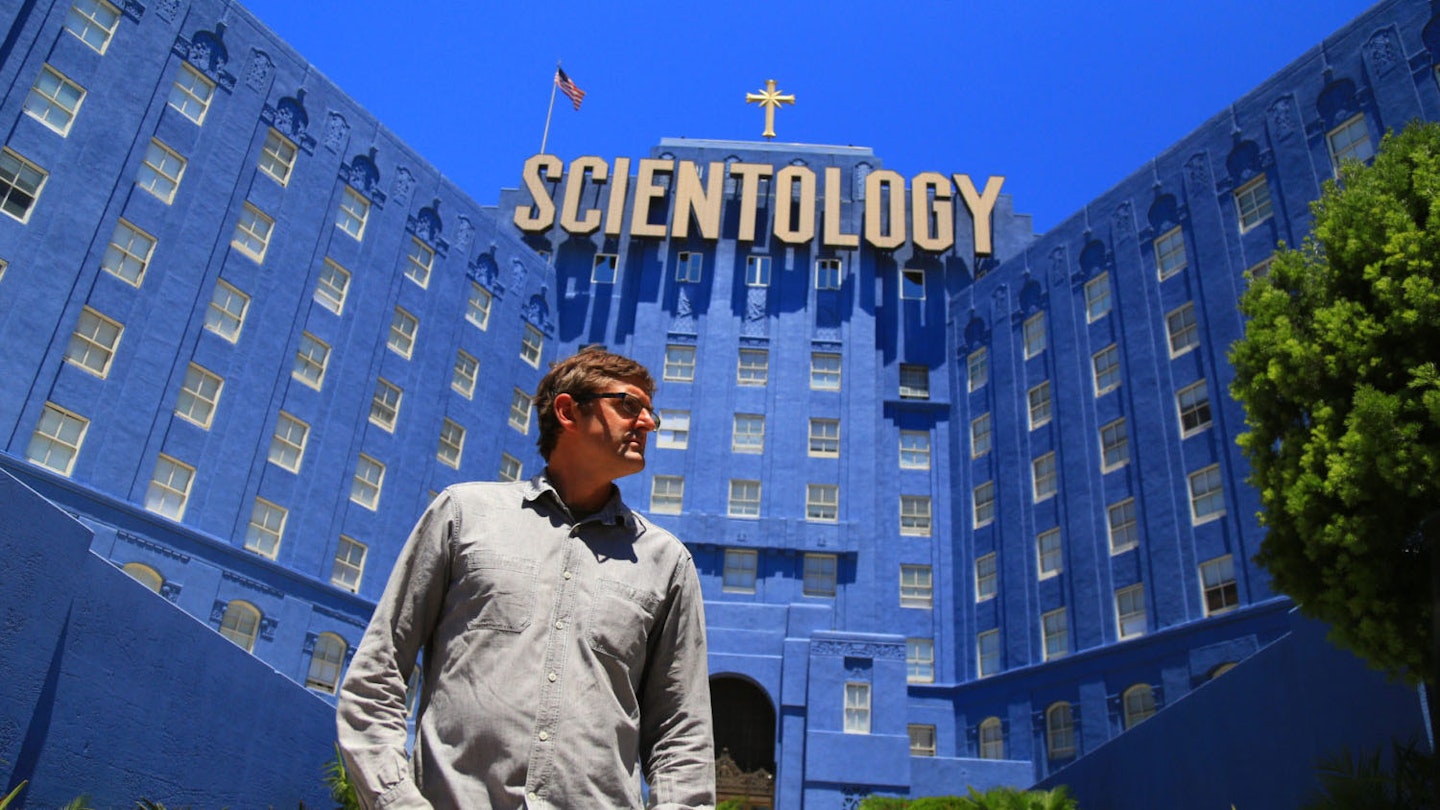Empire can’t help but feeling a smidge of trepidation in interviewing Louis Theroux. After all, he is one of the most famous and admired interviewers in the country, skewering his many subjects with disarming politeness and a razor-sharp intellect. Would we find the tables turned on us? Could we unwittingly find ourselves under the glare of his tenacious interviewing style? We needn’t have worried, of course: Theroux is as charming and thoughtful an interviewee as he is on the other side of the curtain, and, as it turns out, a lot more forthcoming than his latest subject, the Church of Scientology, in My Scientology Movie (out this week).
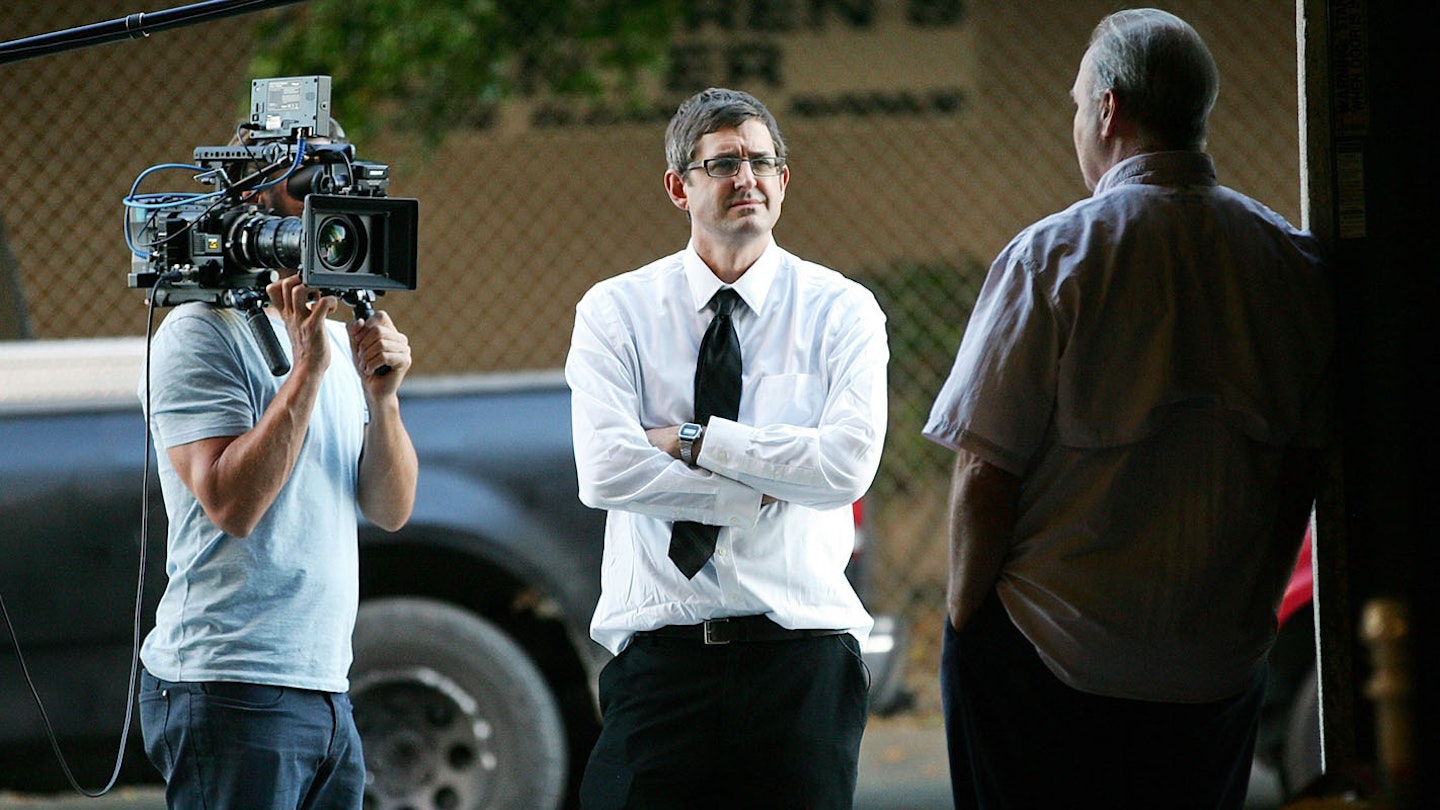
You’ve made BBC television documentaries for nearly twenty years. Why make a feature film now?
I've always slightly harboured a dream of making a film, a documentary feature. Somehow I just got into a way of working a routine of making TV docs. It's not as though you do that enough and then graduate – you sort of need to make a conscious decision to work in a different way.
I'm certainly very happy with my TV output, but it was actually the urging of Simon Chinn, the producer, who collared me at Sheffield’s Doc/Fest a few years ago and said, ‘you should think about doing a film documentary’ – that's what he specialised in – and he kind of made it happen. He cleared the path. It's a bit like swimming upstream with a sort of big cinema doc. There's so much more money involved. It takes more effort, more co-ordinating different people. He did all of that.
Does Scientology lend itself more to a cinematic canvas?
We were conscious not to simply do the same thing we do on TV, only half an hour longer.
I think it does. It's all very well to say 'I'm going to make a 90-minute feature', but what does that really mean?' We were conscious not to simply do the same thing we do on TV, only half an hour longer. I think we wanted to be more ambitious, and in a sense I needed to pick a subject that was worthy of the longer form. But I also needed to pick an approach that would allow the longer form to sort of feel justified, feel that it was right.
Now, Scientology is much bigger in some ways than other stories. I've certainly done strange religious groups in the past, but not one that's got international followers and millions of dollars in donations extracted from people, celebrity adherers like Tom Cruise – scale, scope and messianic reach. But the other part of it was that they were not inviting me in. They were keeping me at arm’s length and in fact rebuffed me quite explicitly in a letter. Which instead of seeing as kind of a deal breaker became a spur to approach it in a different way in which I have to do more, I sort of have to create the story more than I typically would if I had access to institutions for a TV doc.
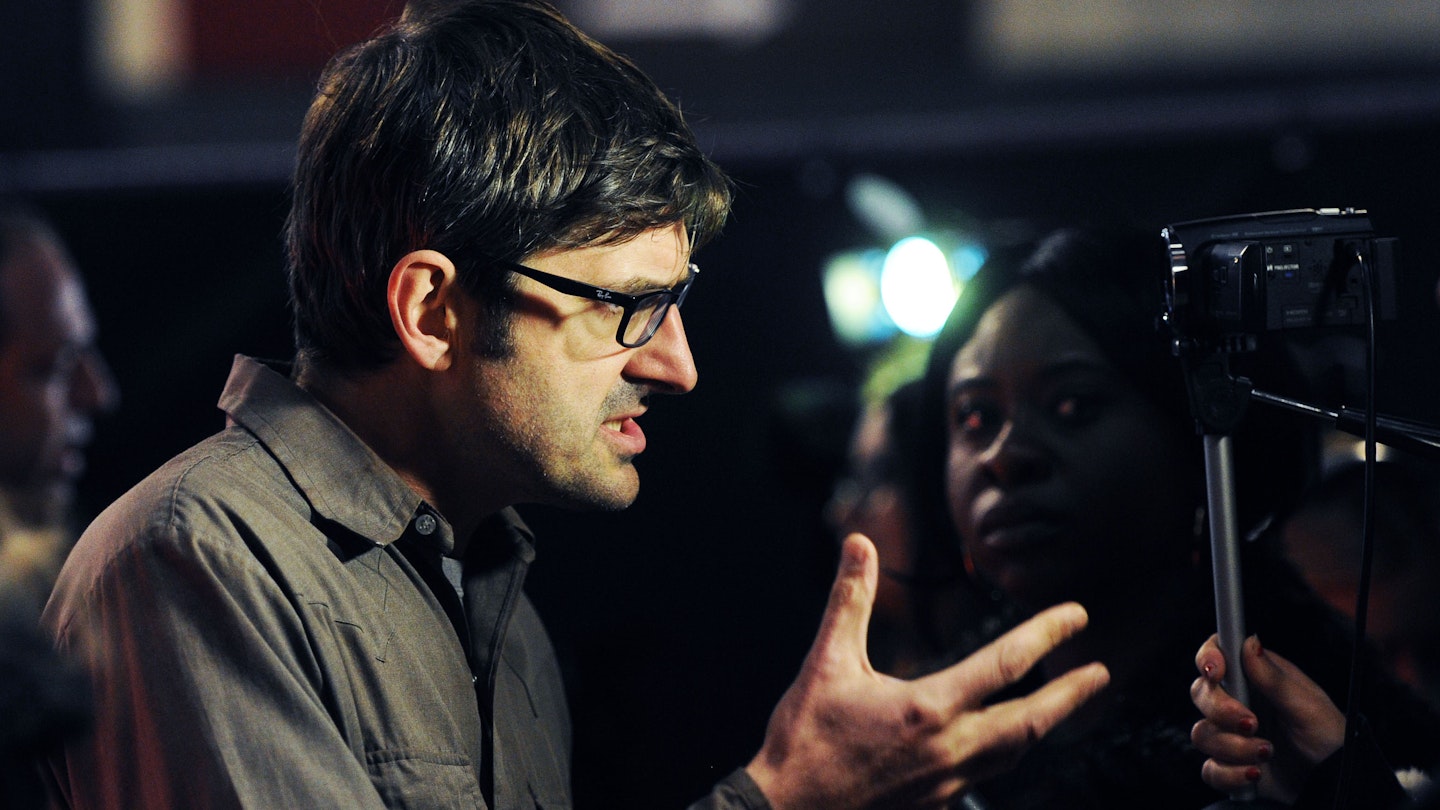
So you reenact scenes with actors, as recounted by ex-Scientologist Marty Rathbun. How did you find that?
It was quite daunting! The idea came up a year or so before we started filming, and I kept going off it and coming back to it. What was difficult was...I normally sort of plunge in and go with the flow, and in this, we're sort of generating our own flow, our own actuality. A big thing for me was seeing The Act Of Killing, the documentary by Joshua Oppenheimer in Indonesia, in which the process of making these reenactments is itself part of the story, and in particular the protagonists in the documentary make their own reenactments. In other words, it's not something the director does, which is typical with reenactments. It’s something that the contributors undertake in order to explain their mindset, their actions, their outlook.
To be honest with you, I think it's my favourite thing in the whole film, because it feels really different to what I normally do. It also feels quintessentially Hollywood, and so much of Scientology is to do with Hollywood. It's very cinematic. It's all meta. It's kind of a cool concept.
You cast ‘Tom Cruise’ in this movie, too.
Yes! We cast David Miscavige, the head of Scientology, and Tom Cruise, which makes perfect sense when you think about it because he's the most famous actor in the world. In the same way that Scientology uses the profile of Tom Cruise to propagate its worldview and do outreach and evangelise, and using the Hollywood system to generate interest – we're doing what they do.
Using Tom Cruise – or rather an actor to play Tom Cruise – to create a sense of what Scientology is, and also piquing people's interest in the movie...it’s quite tantalising, isn't it? The guy we get does a pretty good job, and looks a lot like Tom Cruise. It's also a chance to unpick: why is Tom Cruise in Scientology? We get them to learn a speech that Tom Cruise gave in 2004 as part of an internal Scientology event where he talks very animatedly about his utter conviction that Scientology has all the answers. We intercut our actors doing that bit. We try and explain their jargon. The role of Tom Cruise. We actually approached the real Tom Cruise! He politely declined, through his representation.

Were the reenactments illuminating for you?
It did a few different things. Going into it, I had my doubts whether it would work. It was a leap of faith. The first day we did the casting call for David Miscavige, about 30 or 40 young actors turned up, and did these lines from an interview Miscavige did; then they did some role play.
I normally plunge in and go with the flow. In this, we're sort of generating our own flow.
They were being fed lines by Marty Rathbun, who served as Miscavige's right hand man and was at one point very high up. Marty was driving the audition process. Several things happened: one was that I felt like it was an insight into the loneliness and vulnerability of the young actor's life, a young actor in Hollywood looking to 'make it', and potentially vulnerable to being recruited into Scientology.
It was also a way of examining not just Scientology's beliefs but questioning the outlook and point of view of Marty Rathbun. There's been other documentaries about Scientology – notably Alex Gibney’s Going Clear – but we don't just interrogate Scientology. We also take a dispassionate look at the critics of Scientology, and the fact that they, in various ways, have an axe to grind as well.
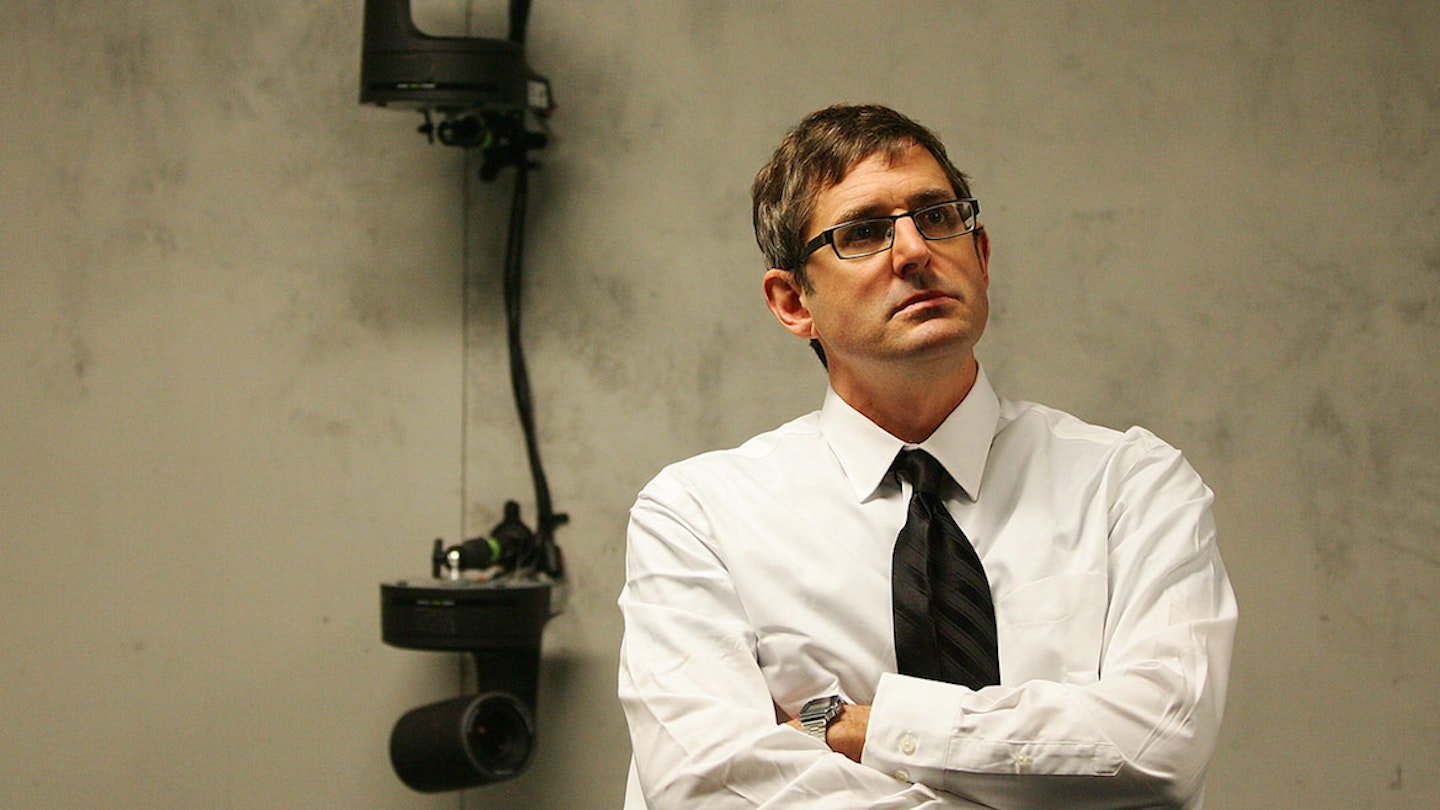
Did you find any positive elements of Scientology?
In my normal way of doing things, there's a little bit of 'going native' that takes place, where you're in a world long enough, you can't really help but start to see things in a nuanced, more humanistic way. Just because you're with people and you start to in general slightly like the people you're with. Scientology weren't letting me in, so it was harder to do that. It took a conscious act of will on our part as filmmakers to not slip into an us-against-them mindset – especially when they're turning up and filming you randomly without saying who they are, tailing you around.
I think it becomes about strenuously not falling into the trap of believing everything that the ex-Scientologists say, and also trying to keep your faculties open. Admitting the pull and seduction that a lot of Scientology's material has: that it is majestic and soaring and in some ways wonderfully grandiose but also absolutely idealistic, in its sense that they are trying to change the world and remake it according to this template laid out by L. Ron Hubbard, a science-fiction writer.
The Church Scientology made several legal threats in response to your film. Did you find that stressful?
A threat was sent on my life via the East Grinstead branch of Scientology. I found that quite amusing.
While we filming, it was more exciting than threatening. I've known for so long that this was the playbook of Scientology – that they would aggressively document and counter-investigate anyone who was doing something on them. I would have been more disappointed and stressed out if that hadn't happened! I would have questioned whether we had a film. The idea was almost to hope that that would happen.
I think it was more stressful after we finished filming. In small ways it continued. This constant threat that if you put a foot wrong... Endless legal letters that came in, which was sort of OK. The BBC can handle that. But there's this constant sense that if you say the wrong thing, tweet the wrong thing, publish the wrong thing, that you give them a legal opening and they will come after you and bring a libel suit. In this day and age, it's about Scientology using lawyers to intimidate and harass. That's the scary part, that was scarier than being followed by private investigators.
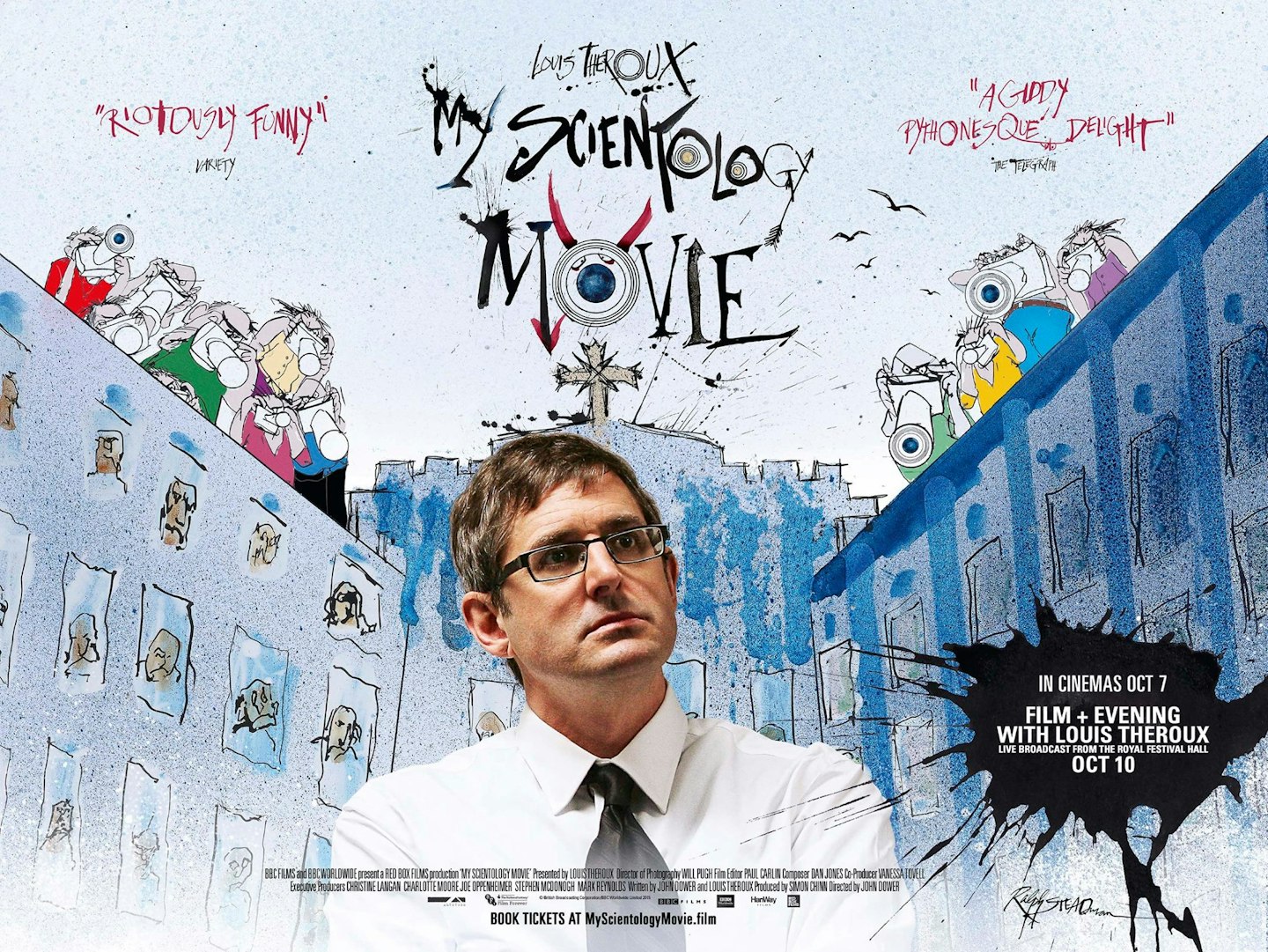
One Sunday morning, the police turned up at my house, and said there'd been a threat sent on my life via the East Grinstead branch of Scientology. Someone called the Church of Scientology and said "we want to hurt Louis Theroux" and they very nicely passed it onto the police and the police came and told me. I thought: that's pretty ludicrous. The idea that anyone would threaten me via the Church of Scientology. I took it to be this kind of slightly weird way for someone to disrupt my day. I found that all quite amusing. To me that was quite fun! The legal stuff was more tricky because lawyers are very expensive.
How does it compare to other cults or strange organisations that you’ve covered?
With these things in general, you have to weigh up the beliefs – the actual creed – against factors like how powerful they are, how much money they have, how much influence they carry. The fact is that you can be a Nazi living in a little trailer in the middle of Montana and as awful as everything you stand for is, you're basically an angry guy in a shack. Scientology, on the other hand, is a multi-billion dollar institution with tentacles that reach into lots of countries. I don't think it's as powerful as many people think it is, but compared to the sorts of people I've dealt with, it is a force to be reckoned with. It has global influence and very very deep pockets. And at the heart of it is a very hardcore fanatical mindset, a total belief in the preachings and teachings of L. Ron Hubbard.
Finally, Is there any fodder for the ‘No Context Louis’ Twitter feed in the movie?
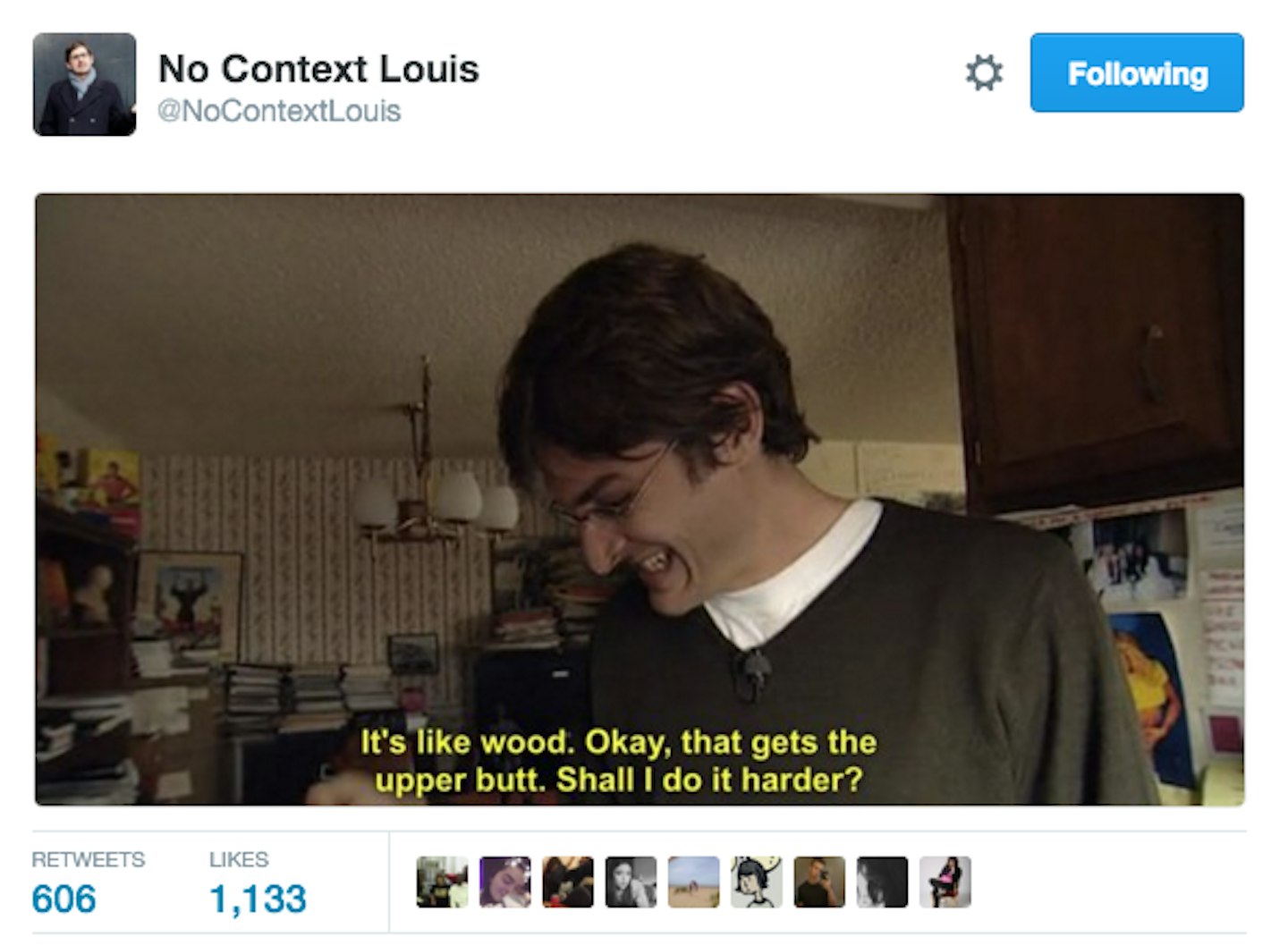
(Laughs) Is that still going? It seems to hinge on me saying bizarre things out of context. There's a bit in the film where I do a training drill. I sort of learn Scientology under the tutelage of Marty Rathbun and I do some pretty weird things in that. That would probably make some good No Context Louis quotes.
My Scientology Movie is in UK cinemas from 7 October. A portion of this interview appeared in Empire magazine, issue #328 (October 2016).
